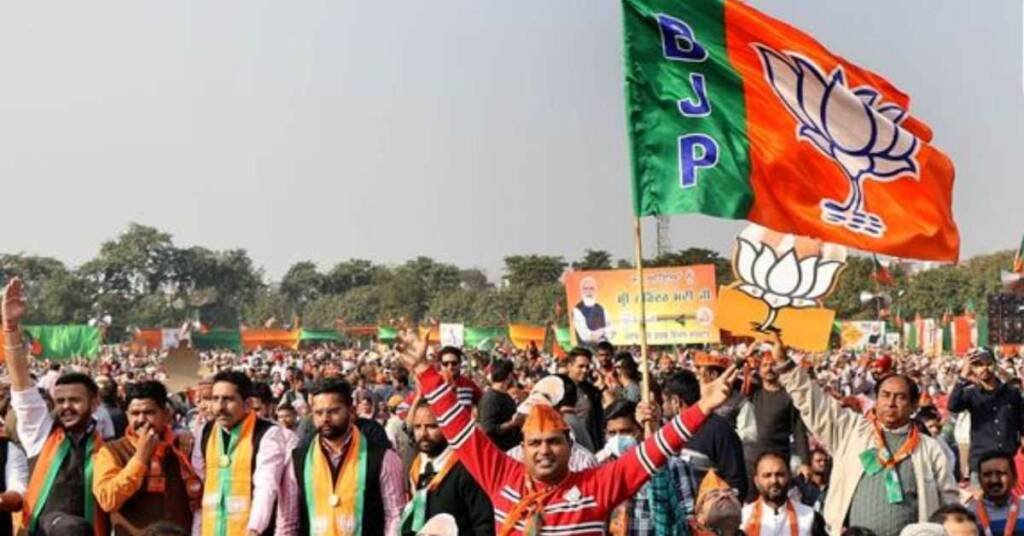The recent bust of a religious conversion gang in Uttar Pradesh has revealed that the issue of conversion is not just about organized crime but also involves the indirect contribution of government policies and the Ministry of Minority Affairs. Schemes related to education, scholarships, reservations, and low-interest loans are easily accessible to minorities but are not available to Hindus. This disparity creates an environment where economically weaker sections of Hindus are tempted to convert for material benefits.
The Role of the Ministry of Minority Affairs in Religious Conversion Special Benefits and Schemes
Special Benefits and Schemes
Education and Scholarships:
The Ministry of Minority Affairs has awarded 2.5 million scholarships to minority students from grades 1 to 12, a facility unavailable to Hindu students.
Housing and Loan Schemes:
Members of minority communities receive loans at an interest rate of 0–3%.
Modernization of Madrasas:
Religious madrasas, often criticized for promoting radicalism, have been funded with millions under the guise of modernization.
Incentives Leading to Conversion
Those who convert to Islam or other religions receive easy access to these benefits and government support. On the other hand, the Hindu community, especially its economically weaker sections, is left without such assistance, making them vulnerable to conversion due to financial temptations.
Political Appeasement: A Historical Perspective
ormer Prime Minister Manmohan Singh’s Statement
“The first claim on the country’s resources belongs to Muslims”—this statement epitomizes the politics of minority appeasement. This mindset has led to policies that disproportionately favor Muslims on the basis of religion.
Appeasement Practices Since 1947
Since Independence, Congress and other political parties have surrendered to the demands of Muslims to secure bloc votes.
Special religious privileges and rights have eroded the secular fabric of the country.
Evidence of Appeasement
Haj Subsidy:
The Indian government provided a ₹28,000 subsidy for Haj pilgrims annually, a practice not followed in any Islamic country.
Waqf Board:
Despite owning assets worth ₹12 lakh crore and generating ₹12,000 crore annually, the Waqf Board receives government grants.
Madarsa Education:
Madarsas are not only exempted from scrutiny but are also funded with millions for modernization.
Pensions and Rewards:
Kerala and Bihar provide pensions to madrasa teachers.
In Bihar, Muslim students passing Class 10 receive ₹10,000 as a reward.
Warnings from the Constitution and Judiciary
Indian Constitution’s Perspective
The Constitution prohibits the granting of special privileges to any community based on religion. Any such actions violate the principle of equality.
Supreme Court’s Warning (2005)
On August 18, 2005, the Supreme Court observed:
“If minority groups are defined and granted special privileges based on perceived political or social disadvantages, it will lead to perpetual unrest in a multi-religious and multilingual country like India. Such demands from one community will inspire others, leading to conflicts and disputes.”
Consequences of Appeasement: Islamization of India
Vote-Bank Politics
Appeasement policies have diverted a significant portion of national resources to Muslim communities.
Special development blocks have been created in 90 districts and 338 towns dominated by Muslims.
Rising Threat of Religious Conversion
Due to government-sponsored benefits, poor Hindus are being lured into converting.
The systematic targeting of Hindus is part of a larger agenda to weaken their social structure.
Solutions: Restoring India’s Secular Fabric
Policy Reforms
Uniform Civil Code:
A single law for all citizens must be implemented to ensure equality.
Population Control:
Family planning norms should apply equally to all communities.
End Religious Subsidies:
Subsidies and privileges based on religion must be discontinued.
Social Awareness
Education and Empowerment:
Promoting education and self-reliance within the Hindu community is essential.
Anti-Conversion Laws:
Strict laws should be enacted to prevent forced or incentivized religious conversions.
Constitutional Equality:
Instead of appeasement, policies should focus on ensuring equal opportunities for all citizens.
Conclusion
The policies of appeasement and incentivized religious conversions not only weaken the Hindu community but also challenge India’s secular and democratic ethos. A balanced, secular approach that upholds equality and justice for all is the need of the hour. Political and policy reforms must prioritize national unity and fairness over vote-bank politics.







